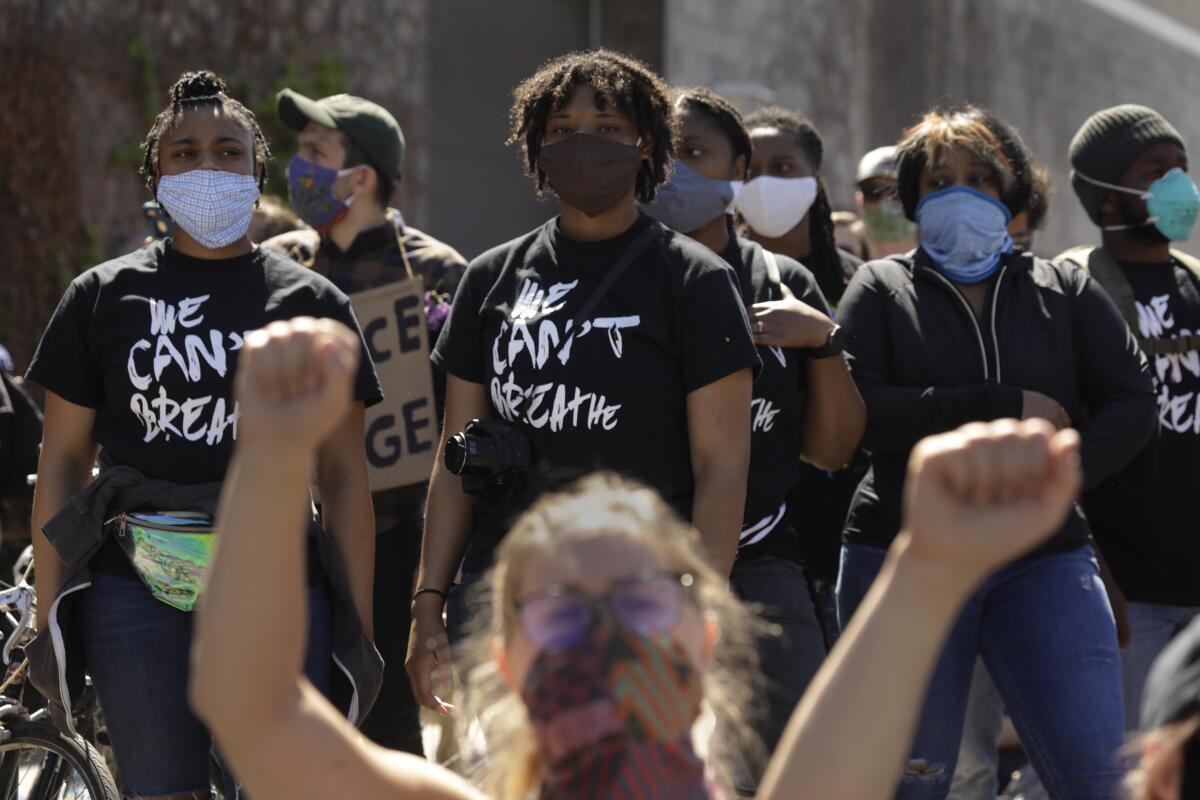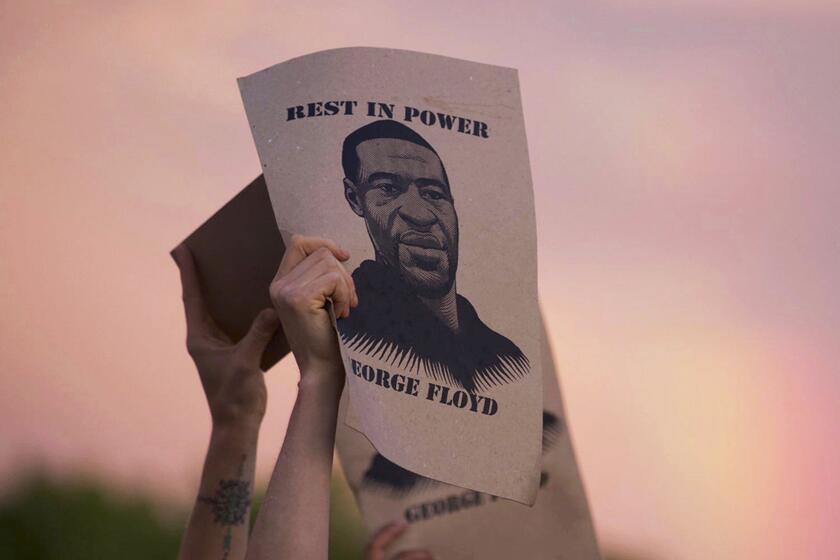Sony, Universal Music Groups launch social justice funds in response to protests

- Share via
Sony Music Group is setting up a $100 million fund for social justice and antiracist initiatives, becoming the latest major music label to provide financial support in response to the death of George Floyd.
Sony Music said Friday that it would “immediately begin to donate to organizations that foster equal rights.” However, the New York-based company, whose artists include Beyoncé, Adele, Bob Dylan, Bruce Springsteen, Khalid, Alicia Keys and Miranda Lambert, did not mention any specific groups that it planned to support. The effort includes contributions from Sony Pictures Entertainment and other divisions of Sony Corp.
“Racial injustice is a global issue that affects our artists, songwriters, our people and of course society at large,” Sony Music Chairman Rob Stringer said in the statement. “We stand against discrimination everywhere and we will take action accordingly with our community fully involved in effectively using these funds.”
The effort came after several prominent artists criticized the music industry’s “Blackout Tuesday” initiative as insufficient. While many prominent music and entertainment figures — the likes of Oprah Winfrey, Rihanna and Jennifer Lopez — went dark on social media as part of the effort, posting only black squares on their feeds, other artists questioned its impact. The Weeknd called on labels that benefit from the work of black artists to step up with donations. Rapper Lil Nas X suggested on Twitter that advocates post “donation and petitions links on instagram all at the same time instead of pitch black images.”
Sony Music also announced that workers companywide will undergo unconscious-bias training, and that the company will match employee donations to groups working for social justice.
Sony Music’s labels include Arista Records, Columbia Records, Epic Records, Legacy Recordings and RCA Records.
You’re not bad if you woke up this morning and blacked out your social media in solidarity with Black Lives Matter. But there are better ways to help.
The world’s largest recording company, Universal Music Group, announced an initial response that includes a $25-million fund and establishes a task force to accelerate the company’s efforts in inclusion and social justice.
The Santa Monica-based company’s labels include Capitol Music Group, Def Jam Records, Interscope Geffen A&M, Motown and Republic Records, with rosters of such top artists as Kendrick Lamar, Drake, Kanye West, The Weeknd, Taylor Swift and Billie Eilish.
The two companies join Warner Music Group, which earlier in the week established a $100 million fund in partnership with the Blavatnik Family Foundation. Warner Music Chief Executive Steve Cooper said the Los Angeles company was “determined to contribute, on a sustained long-term basis, to the effort to bring about real change.”
Entertainment companies, including the Walt Disney Co., also have announced financial support for inclusion efforts. On Friday, ViacomCBS said it would contribute $5 million to the NAACP Legal Defense Fund, Amnesty International and National Bail Out, among other organizations.
“The problems we are addressing are not new, and they certainly do not have easy solutions, but we are dedicated to fighting for real, lasting change,” Universal Music general counsel Jeff Harleston and Motown Records President Ethiopia Habtemariam said Thursday in a joint statement that announced the company’s various initiatives.
The executives said they would help support organizations that focus on economic empowerment and business development; housing; legal services and bail; physical and mental health services; legislative reform; voting resources; and education. They also said the company planned to put itself under the microscope.
“We know that we have work to do within our own company, and the [task force] will examine UMG’s policies, procedures, work environment as they apply to our workforce,” Harleston and Habtemariam wrote in the message to employees. “This includes identifying issues of bias, discrimination and inequality and designing initiatives to improve access, advancement, recruiting and retention of diverse workforce at all levels within the company.”
Staff writer Ryan Faughnder contributed to this report.
More to Read
Inside the business of entertainment
The Wide Shot brings you news, analysis and insights on everything from streaming wars to production — and what it all means for the future.
You may occasionally receive promotional content from the Los Angeles Times.











